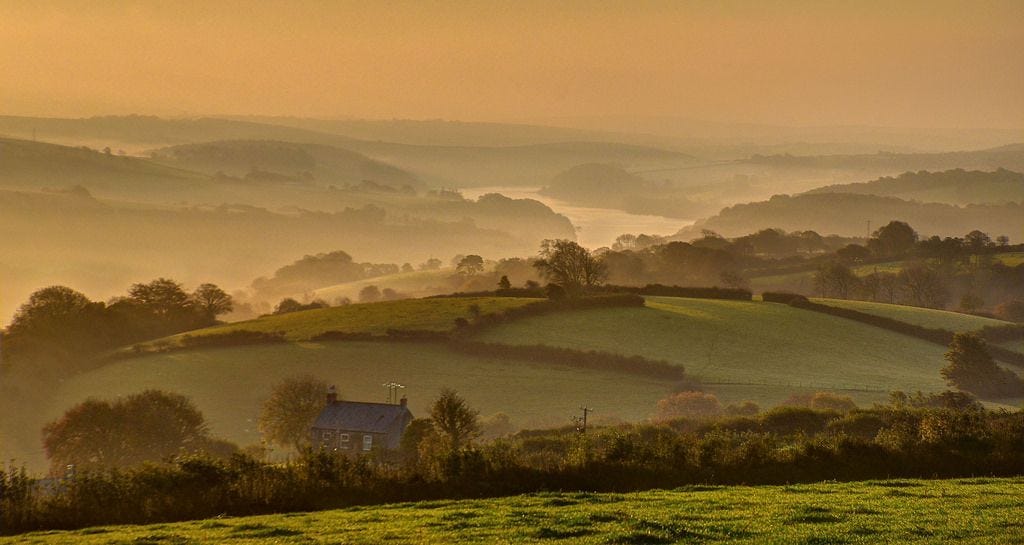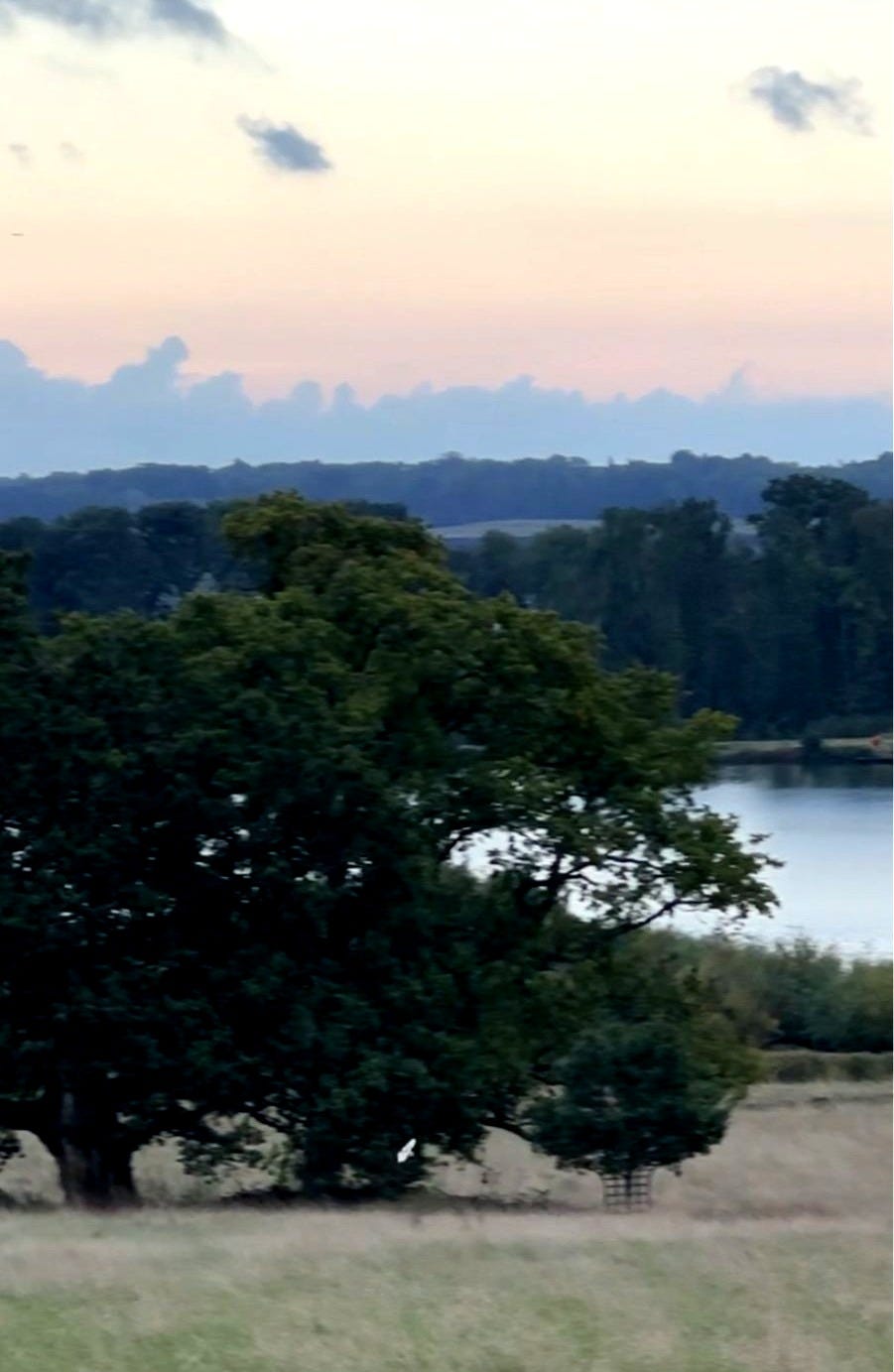How awe makes you kinder - The Campfire
Experiencing awe isn't just a nice-to-have, it's a key part of the human-nature connection, one that scientists have proven makes you a better person.
The Campfire is an newsletter exploring wellbeing and connection in a fast-paced digital life. Some editions are free, some are for paid subscribers only. Sign up here
Gather round 🔥
Out walking my dog at dusk last week I saw a large white-looking bird appear out of nowhere, swoop over the fields and then dive into the long grass. It was a barn owl out hunting.
It was a quiet, still evening and I was the only person around. It was just me and him/her.
After silently swooping around, it disappeared into a tree. I waited around wanting to watch more of the show, but eventually admitted defeat and I walked on.
Afterwards, I noticed how positive I was for the rest of my walk and excited to tell my wife and send her the fuzzy video I took as it flew away.
A sense of awe might be more commonly associated with the innocence and naivety of children - seeing a colourful fish or watching fireworks for the first time. But it’s something just as powerful for adults.
The sense of awe as we recognise it was mainly ring-fenced for the religious and the sacred, before Irish philosopher Edmund Burke redefined the concept in his A Philosophical Enquiry into the Origin of Our Ideas of the Sublime and Beautiful in 1757. He says “awe arises when perceiving power that is obscure”. He takes the idea of awe away from religions and places it firmly as part of our human experience.
Psychologist Dacher Keltner was the first to investigate the affect of awe in 1990s on our body and brains and he showed that it:
- reduces inflammatory markers in our blood
- reduces stress
- makes us kinder to people
Many experiences with awe still come from our interaction with nature, but also art, music and words. Keltner found awe is actually a common experience too, people tend to feel it around twice a week. How much I agree with this estimate, I’m not so sure. He also found awe was experienced more often in older people and more so in women.
For me, the most outstanding part of Keltner’s research was this: people are more ethical, kind and generous after experiencing awe.
Why would a sense of awe make us kinder and more generous?
It literally changes our minds. It reduces activity in the default mode network of the brain, or the area that is associated with our sense of ‘self’.
In simple terms, awe connects you to something wider, larger and more mysterious than yourself. It helps us bond and relate to others and the natural world.
We go from self-interest to collective interest. Isolated self to integrated self. It helps breaks down “us” v “them” attitudes.
It was perhaps a bit sad that this feeling of watching the owl felt so noticeable for me. Have I not been getting my healthy dose of awe? Have I neglected seeking out more unexpected or spontaneous experiences where awe might be felt more easily?
I would easily have missed that owl if I was head down in my phone, listening a podcast for example, only paying attention to my own needs for distraction and stimulation. Instead, I had my eyes and ears open and was rewarded.
There is an abundance of awe all around us that we’re losing connection to - the colourful, the squawking, the swooping, the glimmering, the fluttering, the scary, the tiny, the weird and wonderful.
And as adults we should be careful not to miss it.
Let me know what you think 👋
When was your last experience of awe, and how often do you feel it?





Awe-some post Joseph. Thanks for sharing.